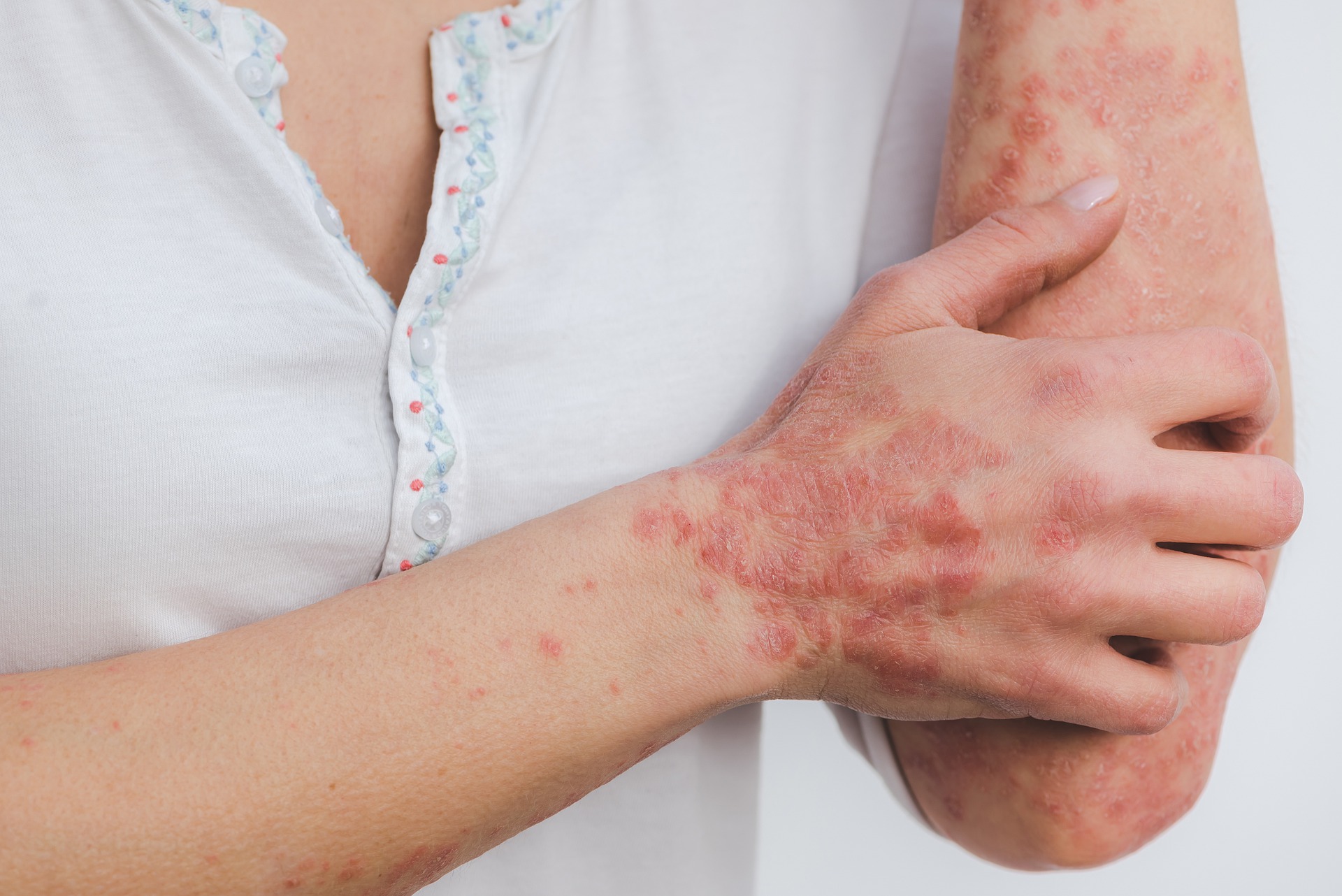If you have been living with psoriasis, you know that it is more than just a skin condition. Psoriasis can affect your overall health and quality of life, making it important to understand all there is to know about the disease.
Psoriasis is a skin condition that can cause red, inflamed patches on the skin. It is estimated that around 7.5 million Americans have psoriasis, which can occur at any age. While there is no cure for psoriasis, treatments are available to help control the symptoms.
In this blog post, we will answer some of the most common questions about psoriasis. We will discuss how it is diagnosed, what treatment options are available, and how it may change as you get older.
What Is Psoriasis?
Psoriasis is a chronic skin condition that affects millions of people around the world. It can occur at any age, but it is most commonly diagnosed in adults. The exact cause of psoriasis is unknown, but it is believed to be related to an overactive immune system. Symptoms of psoriasis include red, scaly patches on the skin. These patches can be itchy and painful, and they can also crack and bleed.
In severe cases, psoriasis can also lead to joint pain and swelling. While there is no cure for psoriasis, there are treatments that can help to manage the symptoms. These include topical creams and ointments, oral medications, and light therapy. Psoriasis can have a significant impact on your overall health, so it is important to talk to your doctor if you think you may have the condition.
Can I Join The Military With Psoriasis?
Psoriasis is a chronic skin condition that causes the buildup of dead skin cells. The symptoms can range from mild to severe, and in some cases, the condition can be quite painful. Because of the way psoriasis affects the skin, it can make it difficult for people to wear uniforms or to participate in activities that involve close contact with others.
For this reason, people with psoriasis are typically barred from enlisting in the military. In some cases, people with psoriasis may be able to join the military if they can demonstrate that their condition is under control. However, if the condition worsens, it could lead to disqualification from the military. Psoriasis is a serious condition that can have a significant impact on a person’s life.
However, it should not prevent people from fulfilling their dreams of serving their country.
Can I Get The COVID Vaccine If I Have Psoriasis?
Psoriasis is a common chronic skin condition that causes the skin to form scaly, red patches. It affects approximately seven million Americans, and while it is not contagious, it can be painful and uncomfortable. People with psoriasis are often concerned about whether or not they can get the COVID vaccine.
The good news is that, in most cases, people with psoriasis can still get the vaccine.
However, it is always important to talk to your doctor first to make sure there are no risks involved. In some rare cases, people with psoriasis may experience a flare-up after getting the vaccine. However, this is usually mild and goes away on its own after a few days. If you have any concerns about getting the vaccine, be sure to talk to your doctor so that you can make an informed decision.
Does Having Psoriasis Have An Impact On Your Lifespan?
In most cases, psoriasis is relatively mild and does not cause any significant problems. However, in some cases, the condition can become quite severe. When this happens, it can lead to a number of underlying health issues, such as heart disease or diabetes. These chronic conditions can then have a serious impact on lifespan.
However, it is important to remember that each individual case is different. Some people with severe psoriasis may live long and healthy lives, while others may not be so lucky. The best way to get an accurate answer is to speak with your doctor.
Can Psoriasis Be Cured?
Psoriasis is a chronic condition characterized by the overproduction of skin cells. The symptoms of psoriasis can vary in severity, but often include intense itching, redness, and scaling. While there is no cure for psoriasis, the symptoms can be managed with medication and other treatments. For milder cases, topical creams and ointments may be sufficient to reduce inflammation and itching.
For more severe cases, light therapy or oral medications may be necessary. In some cases, a combination of treatments may be required to achieve the desired results. Regardless of the approach taken, it is important to work with a healthcare provider to develop an individualized treatment plan. With proper care, it is possible to minimize the impact of psoriasis and improve quality of life.
Will Psoriasis Worsen As I Get Older?
While psoriasis is not inherently linked to aging, the condition can appear to worsen as you get older. This is often due to environmental factors, such as increased exposure to sunlight or changes in stress levels. However, it is also possible for psoriasis to improve with age. In some cases, the frequency of flare-ups decreases, and the overall severity of the condition may lessen.
As people age, they often become more aware of their own health and learn how to better manage their condition. For instance, they may develop better coping mechanisms for dealing with stress, or they may be more diligent about applying sunscreen when spending time outdoors. With proper care, it is possible for people with psoriasis to maintain a good quality of life despite the challenges posed by the condition.
Conclusion
Psoriasis does not have to keep you from serving your country. With proactive care, you can manage your symptoms and enjoy a good quality of life. If you are experiencing any difficulties because of your psoriasis, be sure to speak with your doctor. Thanks for reading!
